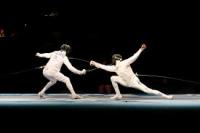Main Menu
Latest Blog Entry
User login
An Accurate Observation Is Never Wrong or What a Coach Needs to Know: Thomas Kurz

First a statement from James Marshall’s book review of my book “Science of Sports Training”
“The book is a bit old now, published in 2001, with most of the research quoted pre-dating that. This would probably disqualify it from being used as an academic text book, but as a Coaching handbook it is very good.”
This made me think:
“How important really is for a coach to have the most up-to-date research?”
I quoted a lot of research papers in this book and in my other books. I did it to back up claims or advice that run contrary to common wisdom (or rather common stupidity…).
Some of the old research I quoted was, and still is valuable no matter whether it was done in 1920 or in 2000. Human physiology (including its expression in human psychology) doesn’t change from decade to decade, not from century to century, hardly from millennium to millennium, so accurate observations of human nature hold true no matter their age. (Think the oldest medical manuals of India and China, or fencing manuals of ages past….)
Valuable studies and experiments are those that reveal truths not likely arrived at by “listening to one’s body” or “paying attention to clues.” Everything else is just fulfilling the academic requirement to publish.
What is important for a coach?
Understanding human body and mind enough to know the relation between input and output, then observing athletes and adjusting the input. In one of my blog posts Training vs Skill Training or More on Super Slow and Similar Approaches, I wrote: “When in doubt, refer to everyday observations. An accurate observation is never wrong.”
Take the most important, in my opinion, principle of sports training: The Principle of Individualization and Accessibility of Training. (When you think of it, all other principles of training are based on that one.) If you apply it, you see that studying the most recent research on exercise science matters much less than observing:
- athletes’ mood
- movement quality
- signs of fatigue
- signs of apprehension
and adjusting training process accordingly.
More articles on the practical application of principles of training are here and my observation-based posts are in my blog .
Tom Kurz is the author of “Science of Sports Training.”
Further reading:
Client Testimonials
 South WestFencing Hub
South WestFencing Hub
Working with James has been a pleasure and education for all of the fencers and coaches, from beginner fencers and trainee fencers, up to international fencers and coaches with decades of experience. We really appreciate James' desire to challenge assumptions but simultaneously his ability to listen to both fencers and coaches on technical and tactical points. He manages to keep his sessions fresh and innovative without losing sight of our central goals. His sessions are challenging and fun and his attention detail is a tribute to his professionalism. Thank you.
More


Comments
[…] Tom Kurz (in his guest blog about coach observation). […]
[…] Kurz has been kind enough to write a couple of guest blogs for us (read more here and […]